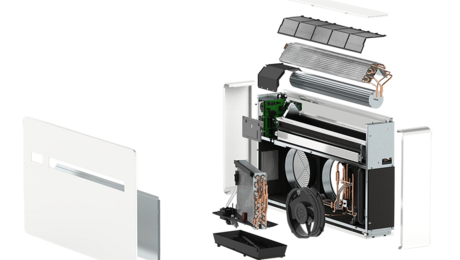What would be the best option for replacing an oil hot water heating system?
My sister just bought a home that uses hot water base board heating system. She is fine with that type of heat, but she doesn’t like the hot water being heated with oil. She would like to get rid of the tank and replace it with something both cheeper to run and greener.
GBA Detail Library
A collection of one thousand construction details organized by climate and house part









Replies
Zenon,
If your sister's house has access to piped natural gas, that's one option. Over the past decades, natural gas is sometimes cheaper than oil, and sometimes more expensive. But it burns a little cleaner, and natural gas appliances don't need to be serviced as frequently as oil burning appliances.
If the house has no access to natural gas, then it's hard to beat oil for convenience and cost. Propane costs more than oil, and provides fewer BTU per gallon.
Other options include a wood-fired boiler (for example, a Tarm boiler) or a boiler that burns wood pellets. It's possible to buy a galvanized steel silo that can hold one season's worth of wood chips; the wood chips can then be fed automatically to the boiler with an electric auger.
She'll want to be sure that she's not "tuning up the engine of a car with four flat tires" by addressing the boiler before doing all she can on airsealing and insulation improvements ESP in the crawlspace and attic.
A waterfurnace type outdoor woodfired boiler may be a good alternative if she can get and store good dry hardwood easily. If she goes this route she may want to keep the oil boiler for backup in case she is out of town or otherwise doesn't want to tend the fire twice a day. She'll also want to be sure the installer sets it up such that when it is running on back-up mode the backup isn't trying to heat the outdoor furnace. Many of these waterfurnaces are not designed to run with a back-up, strange as that sounds. They also can emit huge amounts of vile smoke when choked down to slow burn or when fed with sub-optimal fuel (tempting to toss bacon fat and paper trash into these things) so they don't gain points with the neighbors. I'd focus on improving the envelope and burning less oil first and look for an alternative heating system much later.
M
Cheaper and greener may not be twins. But even if you had to burn propane because natural gas wasn't available, it will certainly be greener and could be cheaper if what you have is an old, inefficient oil burner (~75%) and you replace it with a 95% modulating low-mass boiler.
An outside wood boiler doesn't come close to being green since, unlike woodstoves, the EPA does not mandate particulate emissions (they have a voluntary compliance program), and some units put out as much soot as four tractor-trailers idling outside your house.